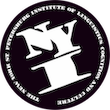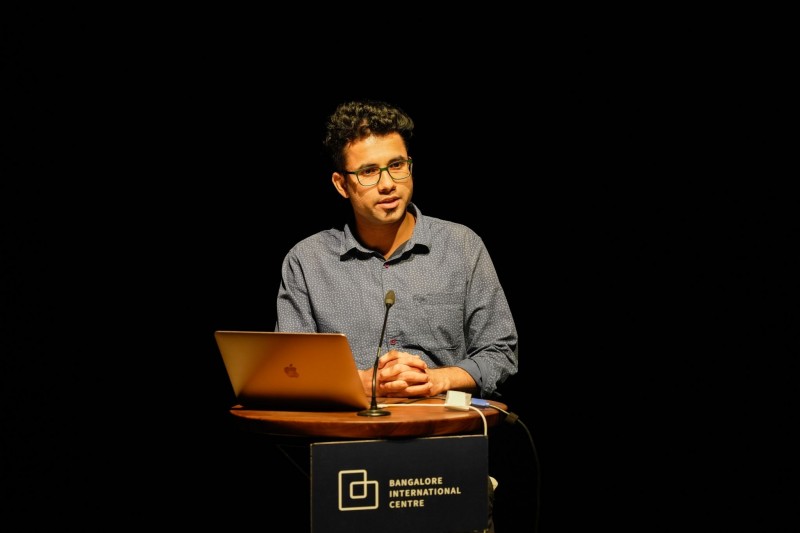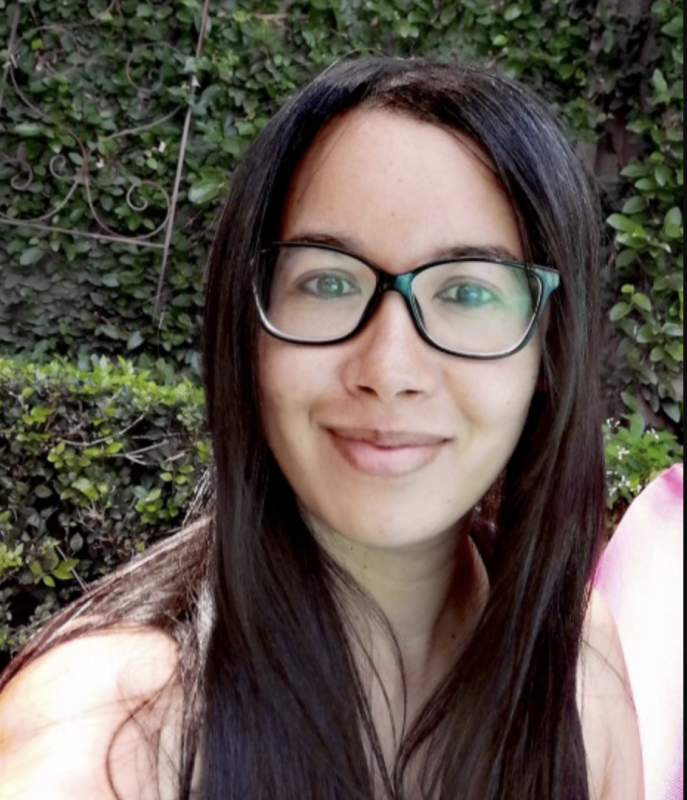Cult A: Special Lecture Series: Decolonial Dialogues
Since the inception of the theoretical paradigm of decoloniality, on the one side, a lot of powerful decolonial resistance movements in the forms of Fees Must Fall, Rhodes Must Fall, and various others have taken place and on the other side, the paradigm has been misinterpreted, distorted, metaphorized and appropriated to a vast extent. It is clearly visible through a lot of publications and workshops that engage with 'big talks on decoloniality, but when it questions of application arises in terms of policy transformations, curricular transformations, pedagogical transformations, and societal transformations, hardly any initiatives are taken at a planetary scale. On the basis of these arguments, Danille Arendse and Sayan Dey would unpack the various ways in which the paradigm of decoloniality functions as a metaphor and how it can be de-metaphorized from various dimensions.
This winter school on decolonial dialogues has been specifically conceptualized to bring forth practices that specifically engages with the practical applications of decolonial thinking in daily life.
The Decolonial Dialgoues lectures are open to the entire NYI community!
1. Tuesday, January 17, 1:00 pm NY / 8:00 pm Pretoria
Ulises Mejias, SUNY Oswego
"Data Colonialism and Digital Border Walls"
Thinking through technology and how it surfaces as a colonial forces, especially since we have entered the fourth industrial revolution and post-Covid we are almost completely dependent on data.
The first part of this talk will focus on the concept of Data Colonialism, which explains the emergence of a new social order based not on the extraction of natural resources or labor, but on the appropriation of human life through data. This new type of colonialism is already resulting in a highly unequal social arrangement that is deeply incompatible with human freedom and autonomy, and resisting it will require strategies that decolonial thinking has foregrounded for centuries. The second part of the talk will examine the application of surveillance technologies along borders as instances of data colonialism, intended to control the movement of migrants and conduct a digital war against them.
2. Thursday, January 19, (special time: 2:30 pm NY / 10:30 pm Pretoria)
Sara C. Motta, University of Newcastle
"Decolonising and feminising a politics of homeplace and/as freedom against and beyond the settler-colonial city"
I write from the unceded sovereign lands of the Worimi and Awabakal nations, in the urban Indigenous/settler city of Mulumbimba-Newcastle, so called Australia. I write as a founding member of an inter-cultural and inter-generational kin-in-relation collective who recognise and in differential ways live the ongoing logics and (Ir)rationalities of onto-epistemological dispossession and enslavement of First Nations custodians, Black and Brown bodies and other other(ed) folks from collective self-determination and homeplace through which the modern/colonial ‘smart ‘city is (re)produced. We refuse to be tamed and misnamed by the logics of hypervisibility/invisibility in which we are deemed lacking and agentless and in need of help and guidance so we might become propitious settler-citizens, intervened upon with individualising rationalities of biopolitical governmentality and carceral logics. We are emergent from such negation as survivance despite and/as refusal of the hetero-patriarchal capitalist-colonial logics of possessive individualism/law/governance as/and the underpinnings of this modern-colonial city. Our journey is one of weaving into being the infrastructures of care and ecologies of intimacy with which to co-create a survivor-led sanctuary homeplace in, against and beyond settler colonial law and governance and embedded through other registers of Indigenising-decolonising and feminising pluridiverse kinship, love, intimacy, and care relationships with human, more than human and non-human kin. In this contribution I will share some of the stories of enfleshing other registers of (political-epistemological) voice and visibility in our collective politics of homeplace against and beyond the settler-coloniality city and/as a decolonising and feminising project of sovereign territories as life.
2. Saturday, January 21, 1:00 pm NY / 8:00 pm Pretoria
Aditya Nigam, (formerly of) The Centre for the Study of Developing Societies, Delhi
"Stepping Outside the Time of Historical Materialism: Some Interventions from the Global South"
The lecture will focus on the ways in which the linear time of 'historical materialism' has been challenged in the works of some thinkers from the Global South. I specifically discuss the work of M.N. Roy, Cedric Robinson, Subaltern Studies and Samir Amin.
2. Tuesday, January 24, 1:00 pm NY / 8:00 pm Pretoria
Ekaterina Zibrova, University of Witwatersrand and Stanislav Saas Ksenofontov, U. of Northern Iowa
"Manifesting Identities"
The identity issue has a strong connection with decolonization perspectives and opposition to diversity. Who, when, and how we have been named still impacts our life. One of the latest definitions of the concept of identity is answering the following question: who am I, where am I, and when am I? On the one hand, as Kobena Mercer observes, ‘identity may become an issue when something assumed to be fixed, coherent, and stables displaced by the experience of doubt and uncertainty’ (Mercer, 1994), which means we recognize our sense of self only in the identity crisis. On the other hand, people start discovering their identity as a resource of inner power through fighting for their individuality. The question is how the sense of being the other helps us transform vulnerability into stability. The Dialog will first present a short overview of identity as one of the central conceptions of diversity studies and invite the audience to a careful personal exploration of their identity to embrace it as a support.
5. Thursday, January 26, 1:00 pm NY / 8:00 pm Pretoria
Sayan Dey and Danille Arendse
"De-metaphorizing Decoloniality"
Since the inception of the theoretical paradigm of decoloniality, on the one side, a lot of powerful decolonial resistance movements in the forms of Fees Must Fall, Rhodes Must Fall, and various others have taken place and on the other side, the paradigm has been misinterpreted, distorted, metaphorized and appropriated to a vast extent. It is clearly visible through a lot of publications and workshops that engage with 'big talks on decoloniality, but when it questions of application arises in terms of policy transformations, curricular transformations, pedagogical transformations, and societal transformations, hardly any initiatives are taken at a planetary scale. On the basis of these arguments, Danille Arendse and Sayan Dey would unpack the various ways in which the paradigm of decoloniality functions as a metaphor and how it can be de-metaphorized from various dimensions.



